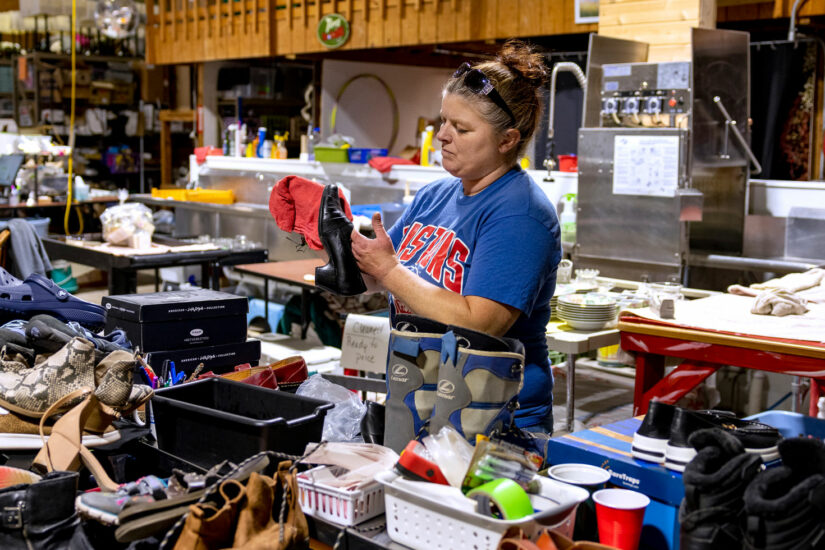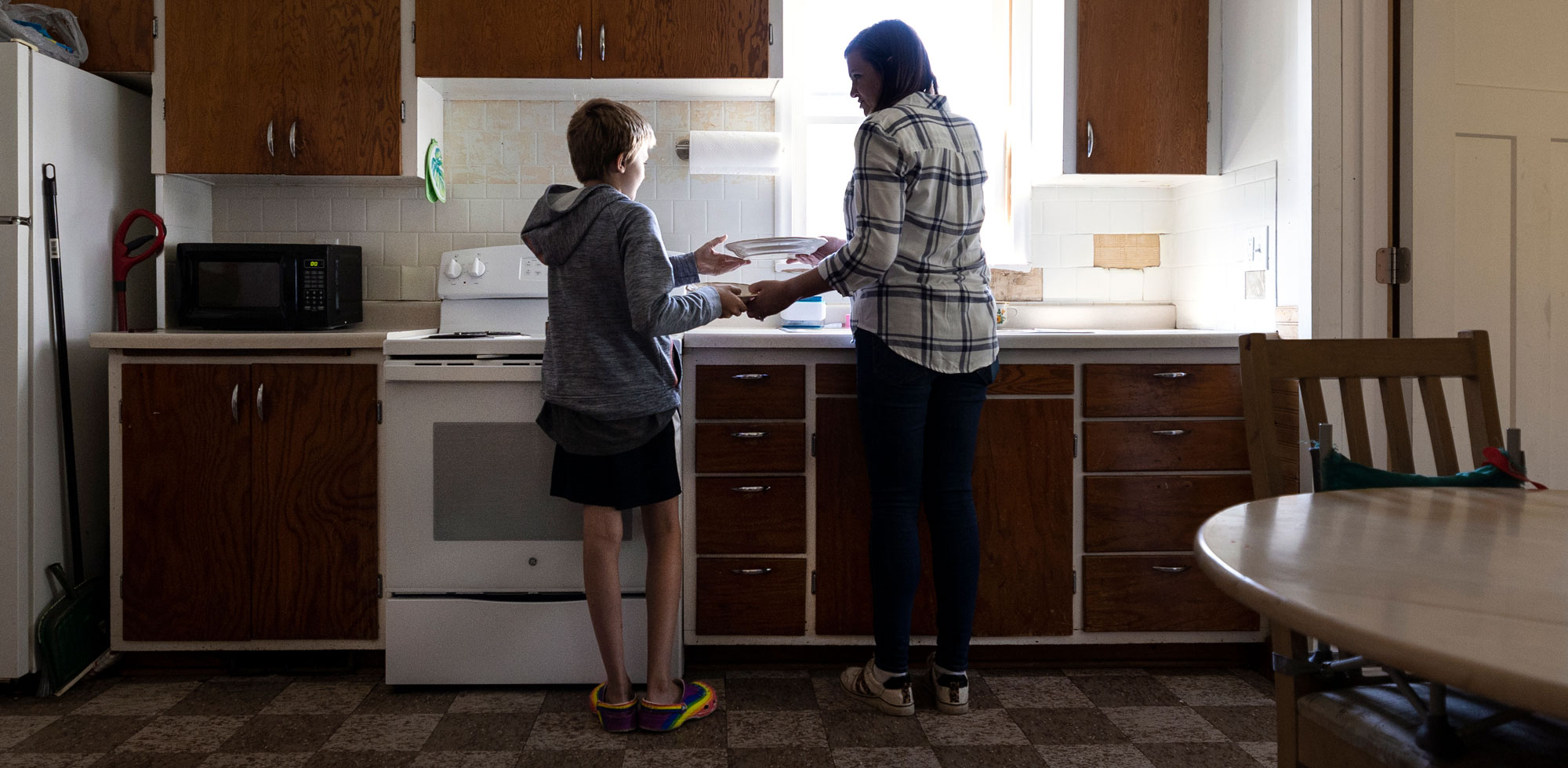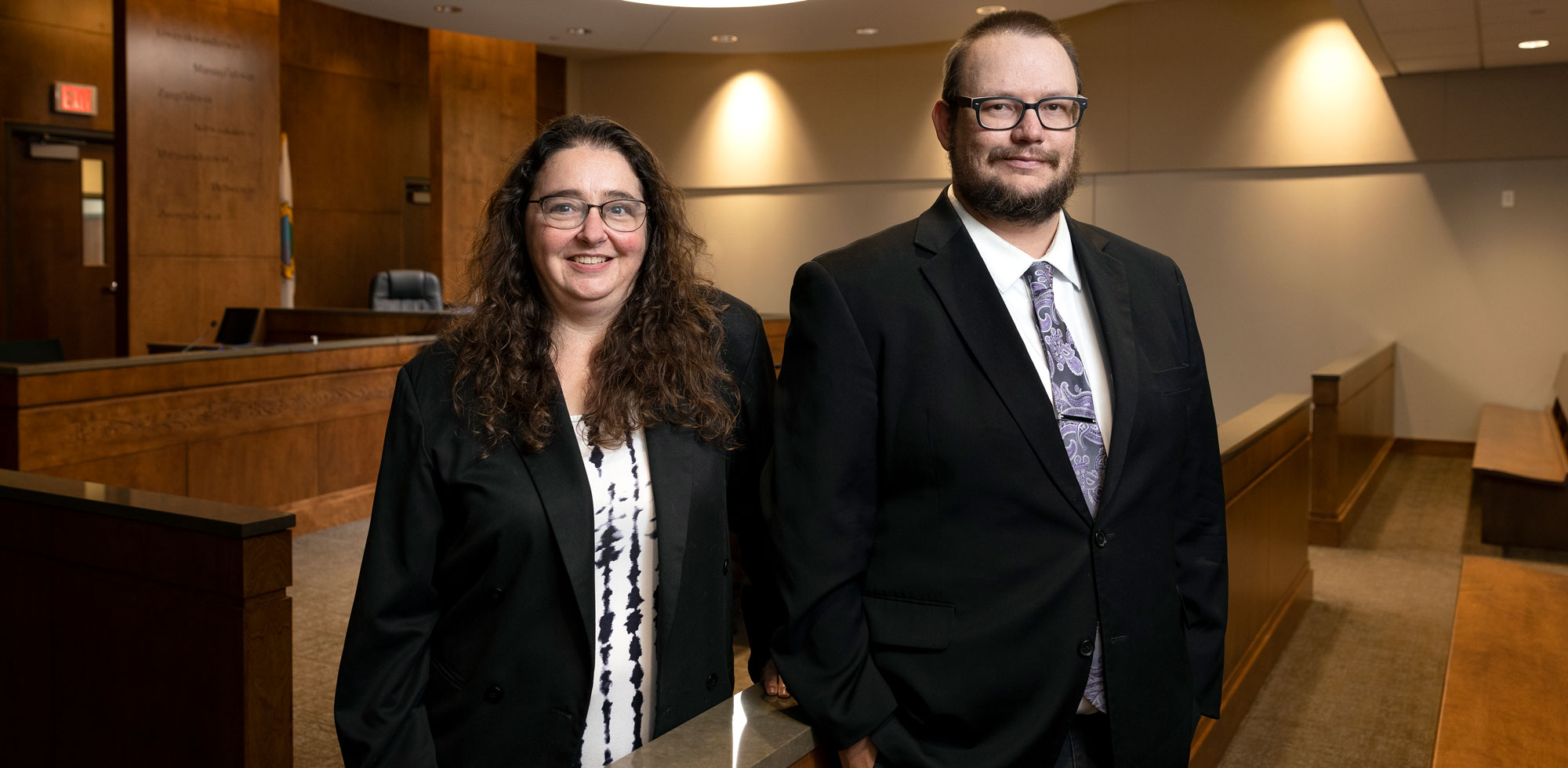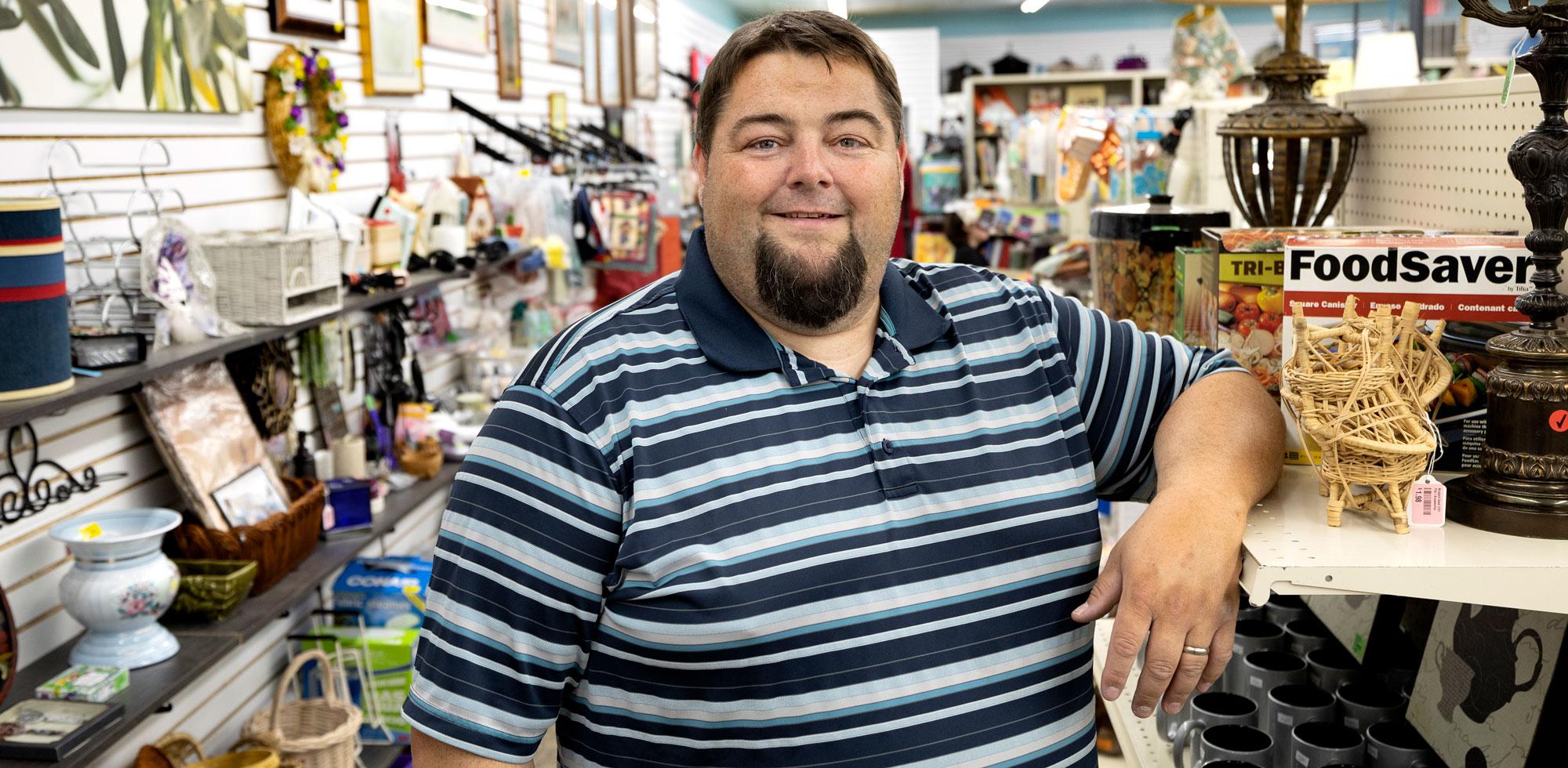
Building Back Better
One year into a special grant round, nonprofits are transforming their post-pandemic services
By Andy Steiner | Photography by Paul Middlestaedt
The global pandemic was winding down in the summer of 2022 when the Initiative Foundation distributed more than $1 million in grants—ranging from $50,000 to $100,000—to 15 local nonprofits. The goal: to help community-based organizations recover from COVID-era setbacks and to reimagine their work to better serve clients.
The $1 million—supported by the generosity of the Otto Bremer Trust—was larger and more flexible than grants typically received by the Initiative Foundation from outside funders, said Zach Tabatt, community philanthropy manager at the Foundation.
“The original purpose was to help these organizations exit the pandemic bigger, better, stronger,” Tabatt said. “We were not looking to tell these nonprofits how they should make change in their organization. Instead, we invited them to dream big and tell us what they thought was needed to create meaningful change.”
In a twist on traditional grant funding, the Initiative Foundation paid for experienced nonprofit consultants to partner with each grantee to help steer them to a successful, sustainable outcome. “Our thought was the nonprofits would appreciate someone willing to help them at no cost,” Tabatt said. “It was intended to make it that much easier and to further lower barriers for each applicant.”
One year in, and the organizations are seeing their visions take shape. We checked in with three grantees to see how their projects have flourished.

Oasis Central Minnesota: Seizing Opportunity
For 35 years, Oasis Central Minnesota has been supporting residents of Morrison County by providing food, shelter and case management for individuals experiencing homelessness. The Little Falls-based nonprofit mainly relied on state grants and donations from individuals and foundations. When the state of Minnesota expanded its Medical Assistance fund, making nonprofits like Oasis eligible for reimbursement for many of the client services it routinely provides, Executive Director Rose Surma saw an opportunity.
While she knew Medical Assistance reimbursement had the potential to transform Oasis Central Minnesota, Surma and her team felt overwhelmed by the sheer volume of work required to plug into the state’s complex electronic tracking-and-billing system.
“There are many steps in enrolling in the state’s provider portal,” Surma said. “We needed help to do it right.”
The Initiative Foundation-paid consultant helped Oasis upgrade to new software and to develop a best-practices guide to track client work and billing time. The transition has been huge, Surma said, “because we now know we’ve been enrolled properly and we’re doing things appropriately. It creates a very stable, regular funding stream.”
Access to regular funding is making an outsized difference in people’s lives. In years past, “we’ve had to ask families to move out of our housing through no fault of their own,” Surma said. Funding simply wasn’t available to support longer stays in the nonprofit’s shelter space. “Now we’re on more stable ground. There is a base of financial support. It is great to have some funding we can count on.”
Surma said Oasis is now looking to expand, perhaps purchasing property to house and support even more individuals and families in the community.

Anishinabe Legal Services: Fighting Native Evictions
The numbers are disturbing: Native Americans in Minnesota are at significantly higher risk of homelessness than other ethnic groups in the state. Cody Nelson, executive director of Anishinabe Legal Services, a Cass Lake-based nonprofit that provides free legal assistance to low-income individuals on the Leech Lake, Red Lake and White Earth reservations, knows that fact better than most.
He pointed to the St. Paul-based Amherst H. Wilder Foundation’s annual Minnesota Homeless Study, which found that “48 percent of Native American participants met the federal definition for homelessness—and of that 48 percent, 77 percent met the state definition for long-term homelessness,” Nelson said.
Eviction is a leading cause of homelessness nationwide, and that reality is no different in Minnesota’s Native nations. “It is incredibly difficult to obtain housing after being evicted,” Nelson said. “It is the modern-day scarlet letter.”
To curb evictions, Anishinabe Legal Services used its Transformative Funding for Nonprofits grant to support clients using the power of the legal system. Many evictions stem from landlord/tenant disputes over repairs or utilities, Nelson said. Tenants sometimes withhold rent or deduct the cost of repairs from their rent payments. Landlords often respond with eviction notices. Nelson and his staff try to step in with legal representation before things go too far. “I feel like our role in helping to mitigate the homelessness epidemic is to stop these eviction actions before they are filed,” Nelson said. “Once that happens, it comes pretty close to guaranteeing homelessness.”
To get ahead of the homelessness challenge, Nelson and Anishinabe Legal Services requested a $100,000 Initiative Foundation grant to support their efforts to create a housing education and litigation unit to educate and support tenants when the threat of an eviction looms.
The Foundation-provided consultant, Nelson said, “was helpful in fleshing out our proposal. She was great to work with and really helpful in creating a plan. She seemed really excited about the project.”
As well as representing tenants in eviction cases, Nelson and his colleagues are creating a comprehensive housing manual that will be distributed to members of the state’s tribal nations. “We’re pulling together sources on different laws, cases about private landlord/tenant law,” he said. “It will be distributed widely across our area/agencies.”
The manual is expected to help educate community members on their rights and responsibilities. Nelson and his colleagues also hope it will help explain just how helpful it can be to have a lawyer on your side when you’re involved in a housing dispute. “A study showed that 96 percent of tenants who had a lawyer didn’t get evicted”—either winning or settling their case, Nelson said.
In the year since the grant was awarded, housing education and litigation unit attorneys have represented 39 tenants and prevented evictions in many of those actions. “Housing is always one of the top priorities in civil legal aid because the consequences are so dire,” Nelson said. “Having a lawyer makes such a difference in the outcome to these matters.”

All Together Now: Salem WEST and the Mustard Seed
Sometimes it just takes a fresh set of eyes. For a long time, staff and volunteers at the Mustard Seed, a beloved thrift shop that raises money for Salem WEST, an outreach arm of Salem Lutheran Church in Deerwood, had been doing things the same way.
When a community member made a donation of household goods to the shop, volunteers and staff would sort and clean it in the unheated back room of the donated lumberyard they used for storage, then pack it up and transport it two and a half miles to the Mustard Seed store in downtown Deerwood. A year and a half ago, when Jason Kempthorne became director of outreach at Salem WEST, he took a good look around the operation and decided there had to be a more efficient way of doing business.
Kempthorne, who had years of nonprofit experience, understood there could be significant cost savings if the storage/processing area and the retail shop were simply merged.
“I could see how we could fix this and make it better, make it easier on our volunteers,” Kempthorne said.
“When you’re in the trenches, it’s hard to stop and see the big picture. But I had a new perspective.” When he heard about the Initiative Foundation’s transformative grants, Kempthorne knew Salem WEST had to apply.
Founded in the 1980s by a group of parishioners who were making cloth diapers, the Mustard Seed quickly grew into a collection of donated household items that were passed along to neighbors in need throughout the community. Donations were first stored in someone’s basement, then a room at the church, then in progressively larger spaces until they made it to the lumber yard.
The store offers clothing, home décor and other items that aren’t considered immediate needs for the nonprofit’s clients. “Each month we serve 50 to 60 households,” Kempthorne says. “If someone gives us something that’s not what a client needs, we’ll sell it. The profit goes back to supporting clients.”
With the help of an Initiative Foundation-paid consultant, Kempthorne refined his grant request and was awarded $75,000 to merge locations and to remodel and weatherproof the 7,500-square-foot building. Salem WEST now has an attractive space for the Mustard Seed store up front, and a warm and volunteer-friendly donation-processing center in back.
From start to finish, Kempthorne said, the granting process was a positive experience. Initiative Foundation staff “came out here boots on the ground. They quickly saw what we wanted to do and they helped us create and realize the vision. We saw a cost savings of $60,000 a year that we can put back into the ministry,” he said.
Learn about the other Central Minnesota organizations that received Transformative Funding for Nonprofits grants, supported by the Otto Bremer Trust.